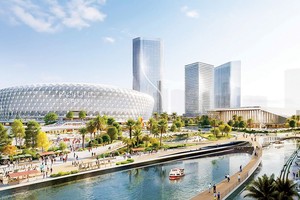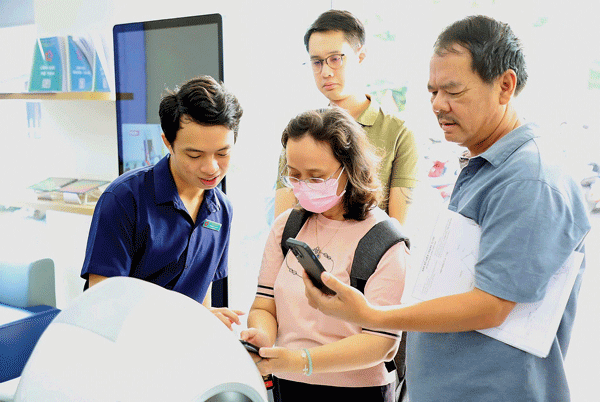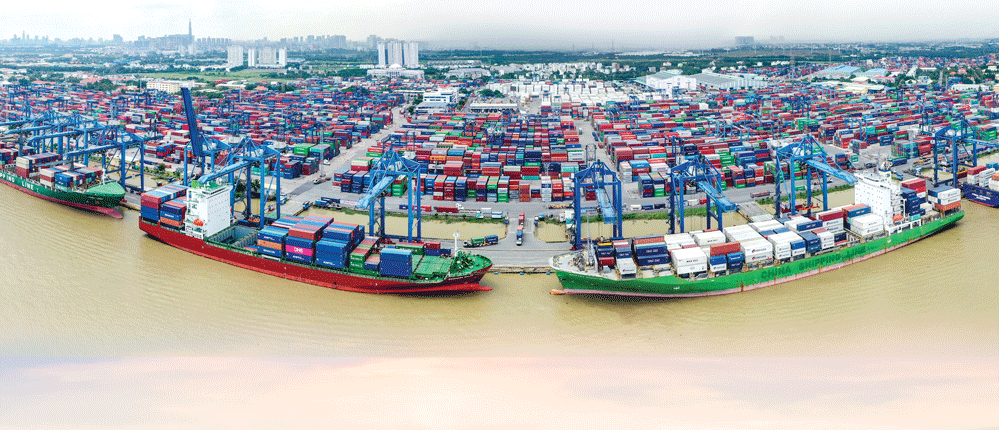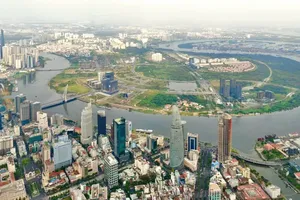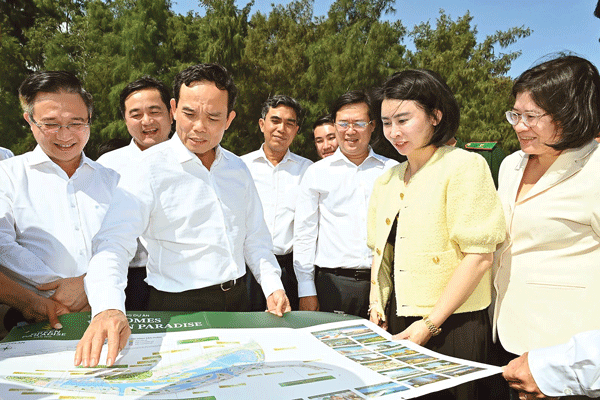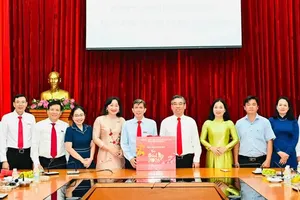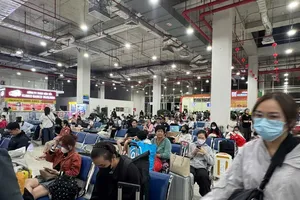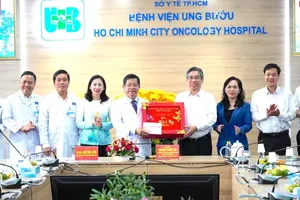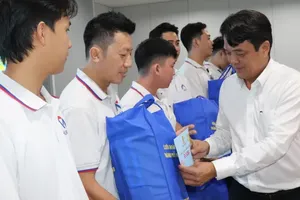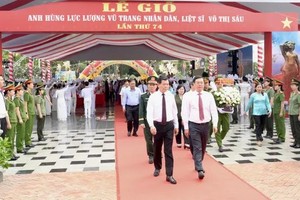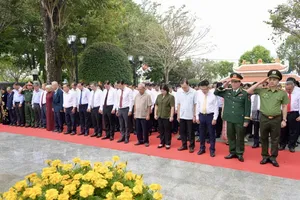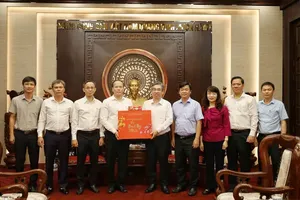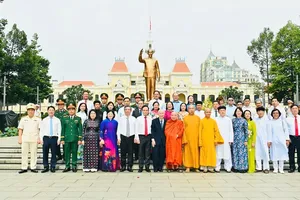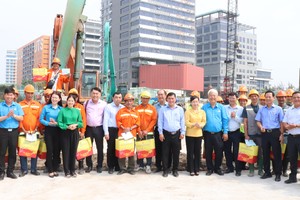Director Lam Dinh Thang made the statement at this afternoon's second expanded conference of the Party Executive Committee of the Ho Chi Minh City People's Committee for the 2020-2025 term.
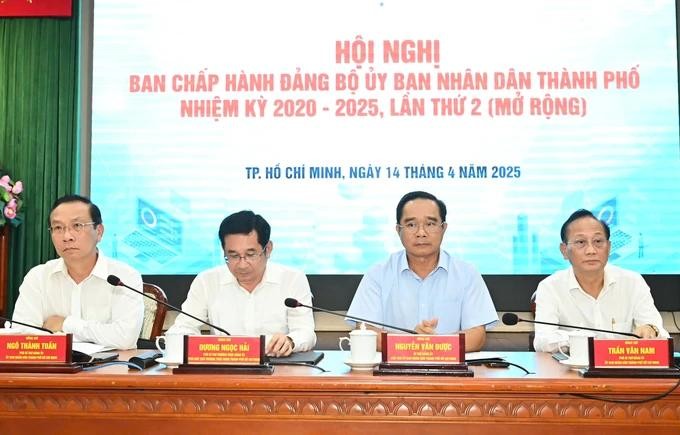
Director Lam Dinh Thang reported that the city has been preparing to reorganize its administrative units while undertaking the ongoing implementation of the Politburo's Resolution 57 with thorough commitment, leading to important initial successes.
He furthered that in the second quarter, the city has focused on a series of solutions from human resource training, perfecting policies and institutions to infrastructure, continuing to prepare for the arrangement of administrative units associated with the implementation of Resolution 57.
Ho Chi Minh City has prioritized the review and refinement of institutional frameworks and policies to foster a supportive environment for the development of science and technology, innovation and digital transformation, recognizing these areas as key competitive advantages, said Director Thang.
He revealed that the city has approved nearly 1,800 internal procedures for administrative processing, with over 1,700 of these streamlined to reduce implementation steps and processing time—cutting more than 3,500 working hours. These reforms have created more favorable conditions for the expansion of online public services.
In addition, Ho Chi Minh City has successfully executed resolutions of the City People's Council, demonstrating a strategic alignment with the principles and directives of Resolution 98.
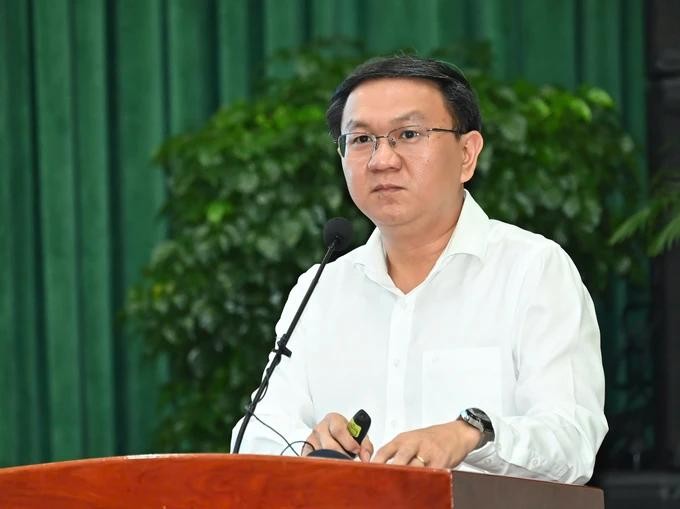
Early outcomes are promising, including the attraction and approval of organizations to establish an international-standard research center focused on microchips and advanced materials, with an estimated investment of VND200 billion (US$7.75 million). The city has also reviewed and supported 152 innovation and startup projects, allocating a total of VND10.3 billion, and has issued licenses for drone testing.
Furthermore, Ho Chi Minh City is gearing up to invest in an AI application project aimed at assisting residents, businesses, and officials in managing administrative tasks. In the second quarter, the city plans to broaden AI training programs for officials, civil servants, public employees, and the community. Additionally, HCMC will work on drafting a resolution for the People's Council, outlining specific mechanisms and policies to execute Resolution 57.
In the near future, the Department of Science and Technology will continue to effectively implement the breakthrough policies of Resolution 98 including testing UAVs, autonomous vehicles, supporting startup projects and developing international standard research centers.
In parallel, the Department will implement four pilot projects in collaboration with the Ministry of Science and Technology. These initiatives focus on developing the Ho Chi Minh City Innovation Startup Center, establishing policies for the commercialization of research outcomes, formulating mechanisms for utilizing enterprises' science and technology development funds, and designing financial frameworks to support infrastructure for science and technology organizations and innovation activities.
Furthermore, the southern largest city is set to finalize a report evaluating its startup ecosystem and outline a strategy to position the city among the top 100 dynamic ecosystems worldwide. The city plans to implement an Information System to track the objectives and initiatives outlined in Resolution 57. Additionally, it will expedite the development of the Concentrated Information Technology Park and establish a versatile High-Tech Center. Key events include the groundbreaking ceremony for the Viettel Data Center in Cu Chi and the inauguration of the HCMC Innovation and Startup Center building.
The Director of the HCMC Department of Science and Technology stated that the city will collaborate with HCMC National University to formulate policies aimed at supporting AI training, microchip development, and training human resources to international standards. The initiative will also focus on promoting digital transformation, integrating science and technology into management and societal practices, and enhancing international partnerships.
Concurrently, the city continues to prepare for the arrangement of administrative units associated with the implementation of Resolution 57.
Director of HCMC Department of Finance Le Thi Huynh Mai said that HCMC is facing major challenges from the US' 46-percent reciprocal tax rate. However, this is also an opportunity for the city to transform its growth model, expand domestic and international markets, promote the private economy and science and technology.
In order to reach the goal of a 10 percent growth in GRDP by 2025, the Director of the Department of Finance has suggested four key solution groups. These solutions emphasize the enhancement of specific mechanisms, the assurance of budget revenue and expenditure, the support of businesses, the encouragement of investment, and the improvement of the investment climate.
According to her, the city has several important tasks to address, including the ongoing implementation of the National Assembly's Resolution 98/2023/QH15. It is essential to propose innovative financial policies, support high-tech initiatives, renewable energy projects, and urban infrastructure development.
Additionally, efforts should continue to promote the mobilization of social resources for infrastructure, with a goal of attracting over VND620 trillion. This involves leveraging the specific mechanisms outlined in Resolution 98 to encourage private investment in transportation, logistics, and high-tech zones.
Acknowledging the urgency of addressing backlog projects, the Department of Finance has prioritized collaboration with the working groups of the Ho Chi Minh City People's Committee to tackle 571 outstanding projects and initiatives. The goal is to resolve all issues within the city's jurisdiction by the end of the year.
Additionally, there will be adaptable capital transfers, with expedited funding for priority projects. Efforts will also be made to enhance the domestic consumption stimulus program, tapping into the extensive market of over 25 million residents in the Southeast region and the Mekong Delta.

